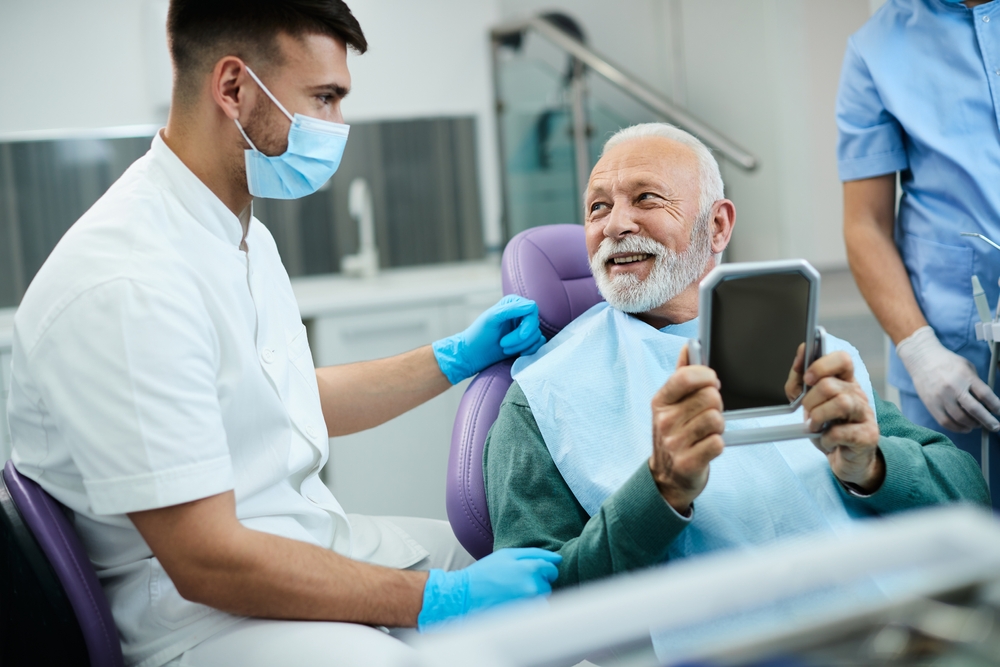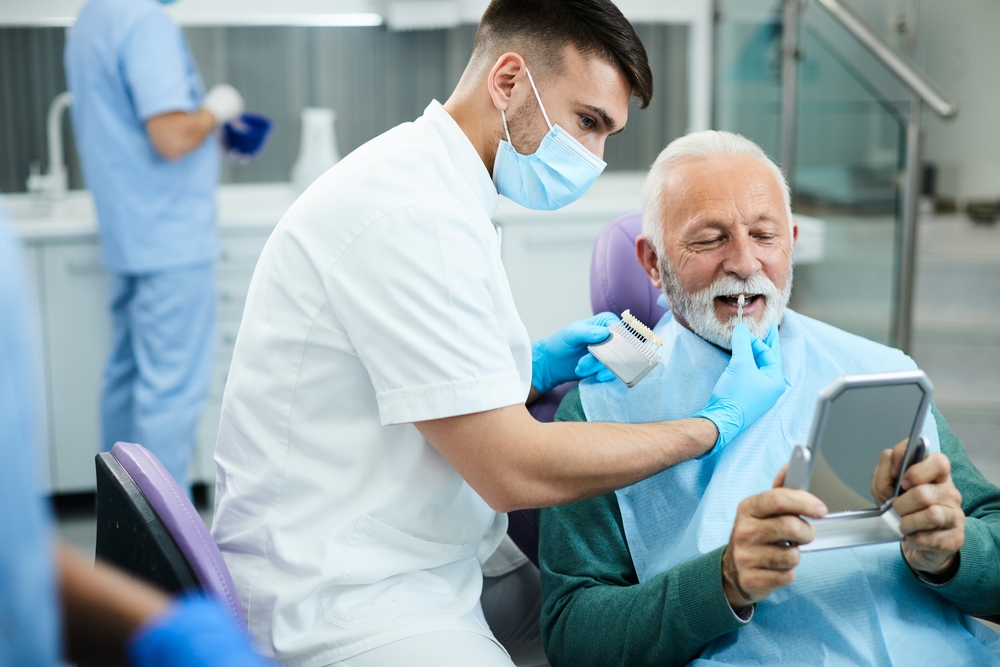Why is Good Oral Hygiene Important for Older Adults?
Category:

Dental care for seniors can often be overlooked. Because older adults are prone to a myriad of more immediately threatening issues, good oral hygiene may fall by the wayside.
Studies show that seniors who neglect oral health experience negative impacts on both their general health and their quality of life. In this post, we’ll explore why good oral hygiene is important for older adults and share tips for better senior dental health care.
Download Our FREE Path to Care Guide
Oral health is rarely the primary focus when discussing health issues among the elderly, but it really should be — research suggests that as many as 78% of seniors have edentulism (or toothlessness) which can impact the health of other organs.
Beyond that, many studies have observed that edentulism has a high impact on quality of life. Toothlessness can cause changes to oral function that leads to decreased self-esteem and avoidance of social activities in seniors who feel embarrassed to speak in front of other people.
Researchers from the The Journal of Post-Acute and Long-Term Care Medicine looked at 14 different studies and found that older adults who had lost more than one tooth had an almost 50% higher risk of developing cognitive impairment and a 28% higher risk of being diagnosed with dementia.
Over time, regular issues with chewing may lead to nutritional deficiency. Malnutrition caused by dental problems has been shown to increase the risk of issues like diabetes or heart disease.
Studies have shown that elderly people with dentures limit their intake of fruits and vegetables and consume large quantities of soft foods that are rich in saturated fat and cholesterol. Avoiding certain foods because of problems with oral health was reported in 22% of older adults aged between 65 and 74 years old and in 35% of older adults aged 50 to 64 years old. In some cases, issues with oral health can lead to anorexia in seniors.
These problems have been shown to be even more prevalent in seniors who live in nursing homes.
Elderly Dental Care Tips
Thankfully, elderly dental care doesn’t need to be complicated. Just like any other aspect of healthcare, prevention should be your primary goal. Experts recommend a visit to your dentist once every six months, with x-rays and cleanings as needed.
Between visits, caregivers should make sure seniors are following a proper dental hygiene routine including rinsing, brushing, and flossing.
- Rinsing – Before brushing your teeth, rinse with water to loosen any food particles. After brushing, use an American Dental Association (ADA) approved mouthwash with fluoride to help prevent tooth decay.
- Brushing – Brush at least twice daily for no less than two minutes each time. Again, look for a toothpaste with the ADA seal of approval. Choose a brush with extra soft bristles and replace the toothbrush every three to four months — or sooner if you notice fraying. Consider an electric toothbrush for seniors who struggle with arthritis.
- Flossing – Flossing can occur before or after brushing. The most important thing is to do it multiple times a day, especially after a meal. If gum bleeding occurs, it doesn’t mean you should stop flossing, but indicates you should be more gentle during your next cleaning.
If you need help managing elderly dental care, contact our caregiving team today at 1-800-GRISWOLD to learn more about our home care services or find a Caregiver near you.
Subscribe
Date: 2025-02-18
Category:


